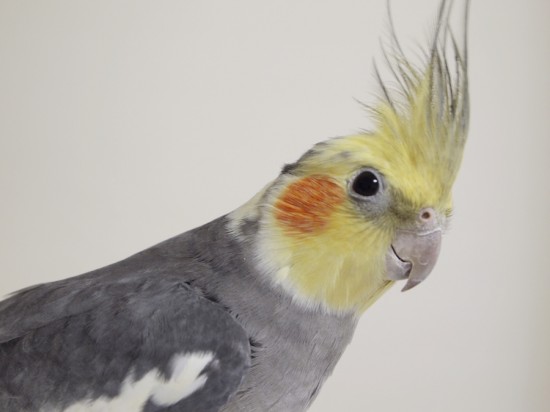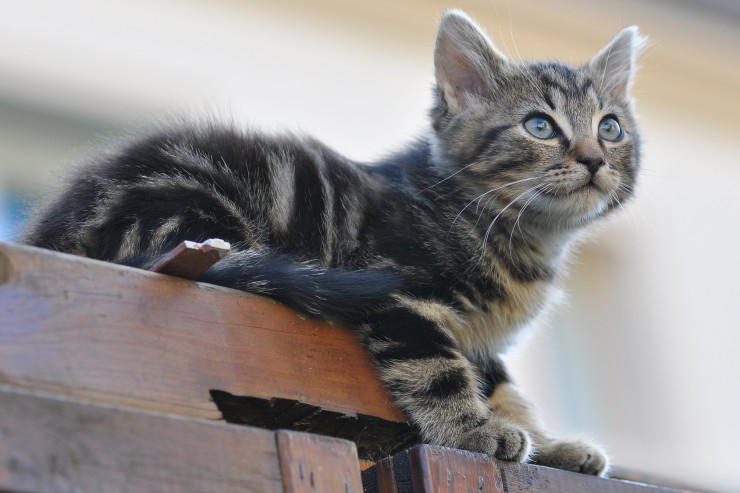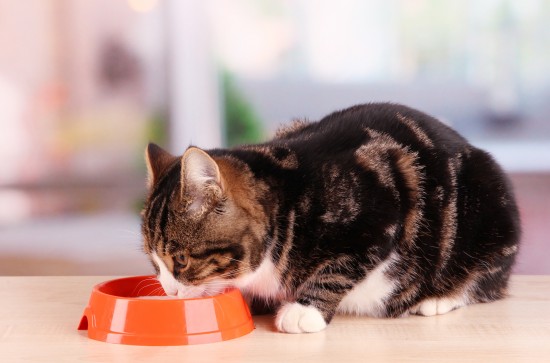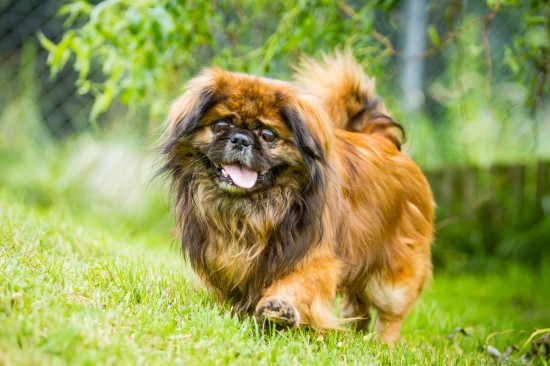

Intelligent and social, cockatiels are the second most popular pet bird after the parakeet. These exotic and elegant little birds are not only extremely entertaining but they are also beautiful to look at. Originally a native of Australia, cockatiels with their distinctive yellow crests, orange cheek patches and sleek long tail feathers are actually small parrots and as such can be trained to talk, mimic and perform tricks just like their big brothers.
In the wild cockatiels are usually grey in colour to help camouflage them from predators, however you can find albino, cinnamon, pearl and pied varieties on sale here in the UK. When young, the male and females tend to look the same and it's not possible to tell the sex until after their first moult when their adult colouring starts to show. This normally happens around 6 to 9 months old. In grey birds, the male tends to have a darker grey body with a bright yellow face and solid colour under feathers on its tail. In contrast the female is a duller grey with a grey face. The males also tend to be more vocal than the much quieter females.
Living between 15 and 20 years, they are very sociable birds and tend to travel either in pairs or in small flocks. They don't like the solitary life whatsoever. Some birds have been known to live into their late twenties. However they do need to be cared for well; if they don't receive adequate nutrition, if their cage is not cleaned properly and if the females are subjected to constant egg laying their life expectancy can decline dramatically to sometimes as low as 1 to 5 years.
These are very sociable little creatures, they love attention and companionship. As long as you take care to approach them in a non-aggressive manner they will reward you with a gentle, delicate and sweet manner. They love to be petted and will put their heads down to enable you to stroke them. Once they are confident with you and you have established a bond of trust, they often start to preen you, plucking at your hair or eyebrows. However they don't tend to bite as much as parrots, although they will bite if frightened.
They will work hard to gain your attention, climbing the bars of their cage, running to and fro on their perch, chirping, singing and displaying their feathers. In the wild they tend to whistle to attract attention or warn of danger so you will see this behaviour exhibited in a domestic setting too. They are very intelligent birds and are capable of talking, whistling tunes and mimicking sounds. For this ability alone they are very entertaining. They can also be taught to perform tricks. In their natural habitat they tend to build nests up a height near to a source of water, so be careful, if you choose to let them out of their cages for periods of time you may find them nesting in some dark, quiet cosy corner.
Do not be tempted to feed your cockatiel a diet of mainly seed. This is not adequate nutrition for them; fed only on seed they will become sick and their life expectancy will be greatly reduced to around 2 - 5 years. You can purchase special pellets from your pet shop which contain almost every nutrient needed by cockatiels to stay healthy. In addition to these you should make sure that they are given some fresh fruit and vegetables daily. Other foods such as chicken, eggs, grain, cereals and bread can be added to their diet in small quantities. Always make sure that you change their food and water on a daily basis together with their cage paper.
You do need to keep in mind that these birds require company and stimulation. If you are not going to be around to provide companionship you should consider keeping two together. If they are ignored they will scream and develop bad habits. Bored and unhappy birds will start chewing and plucking at their own feathers. Make sure that you give them a selection of colourful bird safe toys to chew if they are going to be left alone. They love to chew; it's their way of exploring their environment.
Cockatiels are often afraid of loud noises, hissing and screaming if they become frightened. For this reason it is advisable to place their cage against a wall or in a corner away from doorways or halls. This gives them a place to retreat to if they are suddenly confronted with a loud noise or a stranger. Their cage also needs to be kept out of draughts.
They can also be prone to night frights, where they wake suddenly and start flapping, disorientated, around their cage. This can be dangerous if their wings hit perches or bars and so it's recommended that you provide a small night light near to the cage and leave one corner of the cage uncovered at night.
Surprisingly cockatiels, for all their sweet and inquisitive nature, can be very moody. They particularly don't like change; whether it is a change of routine, change of location or a change in your routine. They can often be very wary of strangers causing them to hiss, scream or bite.
They are also known as 'dusty' birds as they have an excessive amount of powder down compared to other species of birds. You will notice this from a layer of white powder in the cage, on the surrounding areas and also on your clothes. Often when they are preening they will be sat in a cloud of white dust. This is a major consideration if you or any members of your family are prone to allergies or asthma as this can aggravate these conditions. Their dust can be controlled with a mist bath but if you do suffer from allergies this may not be the bird for you.
So all in all, if you have the time and attention available to give to these sweet little birds you will find a charming, intelligent and entertaining companion, but do bear in mind that they do require a constant routine and fairly comprehensive care to ensure that they live a full, long and satisfying life.
 Is It A Good Idea To Feed Stray Or Feral Cats?
Is It A Good Idea
Is It A Good Idea To Feed Stray Or Feral Cats?
Is It A Good Idea
 How To Feed Cats With Liver Disease
How To Feed Cats
How To Feed Cats With Liver Disease
How To Feed Cats
 How To Tackle A Dog That Urinates Submissively Or When Excited
How To Tackle A D
How To Tackle A Dog That Urinates Submissively Or When Excited
How To Tackle A D
 Pekingese Dog Hereditary Health And Health Testing
Pekingese Dog Her
Pekingese Dog Hereditary Health And Health Testing
Pekingese Dog Her
 What Determines The Price Of Koi Carp - Plus Where To Buy Koi
What Determines T
What Determines The Price Of Koi Carp - Plus Where To Buy Koi
What Determines T
Copyright © 2005-2016 Pet Information All Rights Reserved
Contact us: www162date@outlook.com